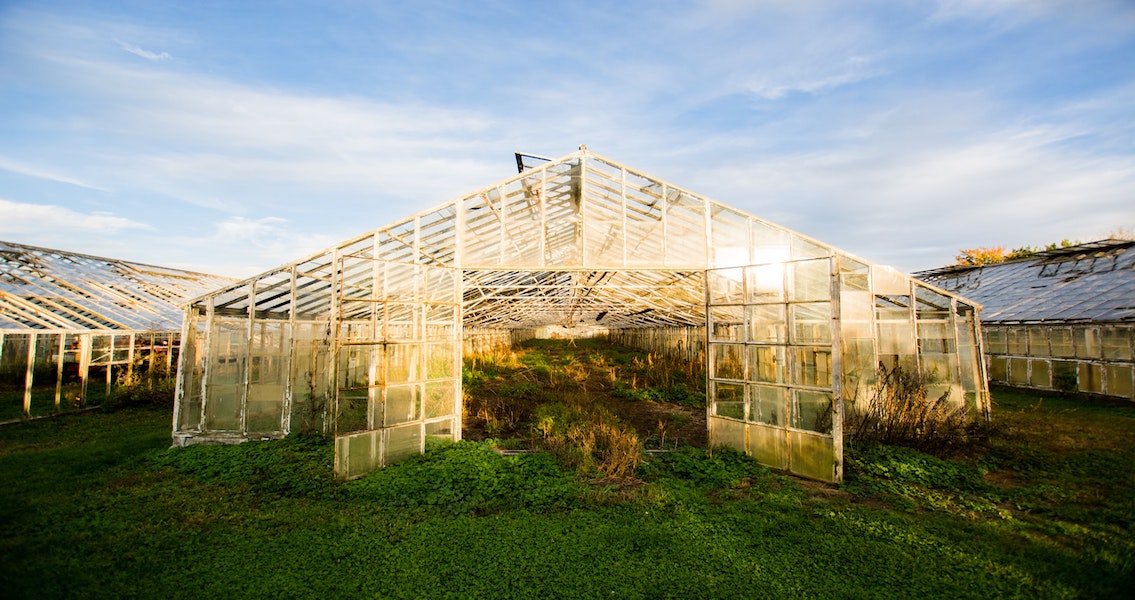Thank goodness for the satnav, because following a map isn’t my forte. When going to new places I invariably take a wrong turn and end up in an unknown location feeling lost and frustrated.
As a species, the human race went the wrong way quite some time ago. We’re now confused and lost. Collectively, we took the wrong fork in the road back in 1974 when glyphosate was introduced to the world. You may know glyphosate by its brand name Roundup.
The handy weedkiller (herbicide) used by many gardeners and farmers the world over. Roundup entered the agricultural landscape with a bang, offering hope for farmers who struggle with weed management.
Roundup also promised reduced crop damage and environmental benefits, giving rise to Roundup-ready crops like soybeans, cotton, and maize in 1996.
Usage of Roundup has soared in the last two decades, not least because of a practice known as “green burndown” which I explore later in this article.
Because glyphosate is water-soluble, it can accumulate in our water, leading to questions being asked about the health risks of the herbicide. A lot of scientific research on the health risks of Roundup in the past was skewed in favour of Monsanto, the massive century-old American agrochemical company.
Today we’re seeing glimmers of hope. In the UK, Glastonbury banned glyphosate in June 2015. Other countries like Mexico have vowed to stop using glyphosate by 2024. Germany has also said they’ll stop using glyphosate by the end of 2023.
A Brief History of Glyphosate (GLY)
Dr Henri Martin discovered glyphosate [N-(phosphonomethyl) glycine] in 1950 when working for a pharmaceutical company. At this time, no medical uses for GLY were observed.
In 1970 Dr John Franz identified identified the herbicidal properties of GLY and began a four-year process of creating Roundup.
Roundup was first sold by Monsanto in 1974. Since then, 1.6 billion kilograms of glyphosate have been applied to crops in the US and 8.6 billion kilograms worldwide.
There’s a growing interest in the ecological and health impact of GLY. Evidence is mounting that points to GLY being responsible for the global decline in bee populations. When weeds are killed, many other insects are decimated.
Some studies say that the main reason is a disruption to the bees’ microbiome. This leads me to think that GLY must also impact the microbes in the guts of people who breathe in GLY or ingest it in their food, impacting gut health.
Are Roundup Ready Crops / Glyphosate (GLY) Safe?
Like many things on this earth, there are two sides to the story.
The European Union (EU) says that GLY is safe while the International Agency for Research on Cancer (IARC) has found that GLY is probably carcinogenic.
A systematic review published by the University of Washington, meanwhile, found that exposure to glyphosate increased the risk of some cancers by over 40 percent.
A lot of the old research suggests that GLY is safe and can be sprayed around vegetable gardens. Despite the new research and cases like groundskeeper Dewayne "Lee" Johnson winning a multimillion-dollar lawsuit for contracting terminal cancer due to Roundup. He has non-Hodgkin’s lymphoma (NHL), a type of cancer that’s linked to overexposure to Roundup.
Weeds are rapidly growing resistant to GLY due to widespread use. Thankfully, humans are becoming wiser and looking at non-chemical interventions to control weeds.
One Iowa State University study found that diversity and crop rotation could reduce reliance on GLY by 88%. They looked at 13 years of data, comparing diversity and crop rotation to conventional rotation. They also found that manure is better than synthetic fertiliser.
Related: Why It's Best to Buy Organic [Plus How to Avoid Toxic Fruit & Veg]
Enter Roundup Ready Seeds
Roundup-ready seeds are required in farms where GLY is going to be sprayed because GLY kills most plants and some insects instantly.
Roundup-ready seeds are genetically modified, and the health risks of GMO seeds are poorly understood. Some GMO food is created to make food more desirable. Whereas Roundup-ready seeds have a specific function – for plants to thrive when sprayed with GLY.
GMO seeds were introduced to the food chain in 1996, and as such the long-term health effects are not well studied.
The genes from your food enter the human body, affecting the bacteria in your gut. Therefore, there is some concern about the use of GMO seeds, particularly when it comes to antibacterial resistance.
Interestingly, there are no laws in the US for labelling foods as derived from GMO seeds. In the UK, however, foods must say on their label if they contain any GMOs.
How Green Burndown has 16x’d GLY Use
In 2000 farmers began a process known as “green burndown” where they spray crops down just before harvest. This led to a massive increase in the amount of herbicide residue on foods.
Burndown has increased the usage of GLY 16-fold in the US alone. You would probably think that legislation would kick in at this point, but you’d be wrong.
Instead of legislators pushing the practice back due to the unsafe quantities of herbicides, regulatory agencies simply increased the permissible residue levels.
Green burndown is carried out to speed up the desiccation (removal of moisture) from the plants, significantly increasing the amount of GLY in some foods.
The Bottom Line
Many modern lifestyle practices carried out by man impact our environment – but the widespread use of Roundup is top of the list.
Often people become vegan for the animals, but more insects get killed daily by the use of Roundup than anything else. New evidence points to the use of Roundup being connected to the development of cancer, however it remains widely used to this day.
Thankfully, country leaders around the world are taking a stand and banning the use of these toxic chemicals.
If you want to take action today to protect yourself and your family from GLY, then invest in organic produce and a high-quality water filter. A 2005 paper also highlighted the cytoprotective effect of vitamins C and E to combat herbicide-induced toxicity on human epidermal cells.
Written by best-selling author and integrative nutrition health coach Rowanna Watson, who has a passion for natural health. Rowanna is an expert in all areas of holistic health, plant-based nutrition, detoxification and personal development.
Water for Health Ltd began trading in 2007 with the goal of positively affecting the lives of many. We still retain that mission because we believe that proper hydration and nutrition can make a massive difference to people’s health and quality of life. Click here to find out more.




























Leave a comment